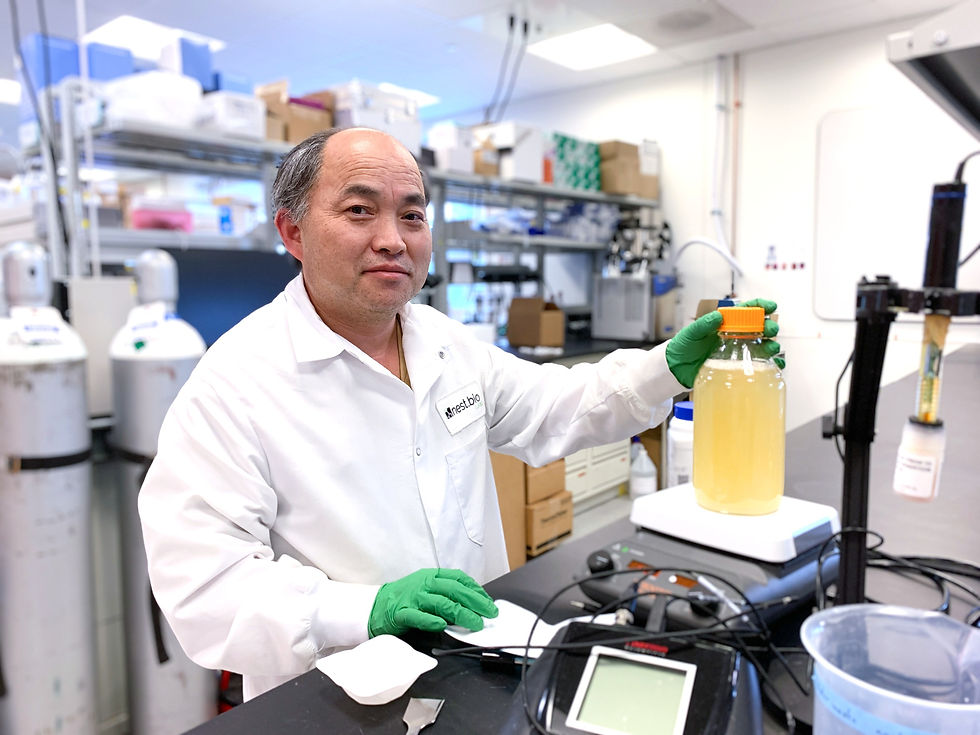Scientist Spotlight | Chengxiang Wu, PhD
- Samantha Clark
- May 5, 2023
- 3 min read
Updated: Mar 14, 2024
Senior Research Associate, Director of HIV Research, IT Bio, LLC

What is your earliest memory of being interested in science?
I was born in a countryside village, and I started to see and work with various kinds of plants, animals, and insects in my early childhood. I started to be interested in observing and thinking about the biology of the plants and creatures I saw, and I started to learn about them from books.
What piece of equipment is your favorite to use and why?
The cell culture incubator. This piece of equipment is essential to my work, and I must use it almost every day. Particularly, I found the incubator in the Nest. Bio works better than what I used to use elsewhere.
What is the most challenging part of your field and how do you deal with that challenge?
The most challenging part of my field is that the virus we try to target, the human immunodeficiency virus (HIV), escapes existing treatments through high-rate mutations, and there has not been an effective treatment to eradicate the viral reservoir from the patient. For this reason, the current HIV treatment regimen requires that patients take medicine every day. My work is to develop human CD4-based CAR T-cell therapy (CAR T) to avoid the generation of escaping mutant viruses because all HIV can not avoid using the CD4 as a receptor to bind and enter their target cells to make productive infection. Our CAR-T strategy would also provide long-term surveillance of virus rebound in patients because we engineer the CAR-T with a combination of CD4-CAR and immune checkpoint blockade.
What would you like to see for the future of your field of research in 20 years?
With great efforts that are put into research for anti-HIV CAR T, as well as progress in the development of vaccines, hopefully, HIV infection will be well controlled around the world in the next 20 years. Scientists will transfer their efforts to fight against cancers and other diseases by that time.
When not working at IT Bio, what do you typically like to do?
When not working, my hobbies are fishing and keeping honeybees. I enjoy beekeeping because honeybees are very important and beneficial insects to maintain a healthy ecological system and environment. This is my way of making myself a contributing community member. Besides keeping honeybees, I also help people remove and save honeybees that take residence on their properties. Instead of leaving the bees to be eliminated by the pest control personnel, I help house owners to remove them and give them a home, so they can continue to benefit people and the environment.

This is a typical picture of a honeybee colony that takes residence in the wrong place in people’s houses. I help cut open the location, save the bees, and give them a new home in the backyard of my own house. In this way, the house owner is helped, bees are saved, and the environment has more pollinators. I call it a 3-win game.

This is a typical picture of a honeybee swarm that landed in people’s backyards. I help to remove and save the bees and make the backyard safe for their kids to play around. See the bee vacuum on the ground? That is my collecting tool to collect and hold the bees, and then take them back to my own backyard to give them a new home.

These are happy honeybees that I rescued and hived in my backyard.
Thank you, Chengxiang, for sharing what led you to science, what you are passionate about at work and home, and for rescuing the bees!
For more information on IT Bio click the link.







Comments